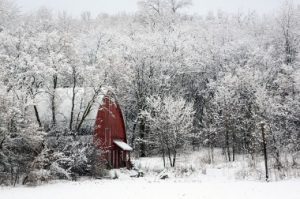 Food Safety during Power Outages by
Food Safety during Power Outages by
Whether it’s a massive winter storm or heavy rains and flooding in the summer, it’s important to handle food safely in an emergency. Knowing how to determine if food is safe and how to keep food safe will help minimize the potential loss of food and reduce the risk of foodborne illness.
The ABCDs of keeping food safe in an emergency. Keep meat, poultry, fish, and eggs refrigerated at or below 40°F and frozen food at or below 0°F. This may be difficult when the power is out! Some tips on keeping food cold: Keep the refrigerator and freezer doors closed as much as possible to maintain the cold temperature. The refrigerator will keep food safely cold for about 4 hours if it is unopened. A full freezer will hold the temperature for approximately 48 hours (24 hours if it is half full) if the door remains closed.
Be prepared for an emergency by having items on hand that don’t require refrigeration and can be eaten cold or heated on the outdoor grill. Shelf-stable food, boxed or canned milk, water, and canned goods should be part of a planned emergency food supply. Make sure you have ready-to-use baby formula for infants and pet food. Remember to use these items and replace them from time to time. Be sure to keep a hand-held can opener for an emergency.
And how do you know if your food stayed cold? The USDA recommends consumers keep an appliance thermometer in their refrigerators and freezers. When the power is out, a thermometer will register the temperature and tell you how warm your refrigerator or freezer is at that moment in time. Unfortunately, standard thermometers won’t tell you the temperature history of your appliance and you have to open the appliance door to read the thermometer. Often consumers are called on to do their best in estimating the safety of the food in their refrigerator or freezer after a power outage. This can be especially difficult for a freezer where the presence of ice crystals may indicate that a product is still partially frozen or that a food is in the process of re-freezing. The old saying applies: When in doubt, throw it out! The USDA has prepared handouts in English and En Español that include detailed information to guide decision-making re the safety of refrigerated and frozen foods after a power outage.



